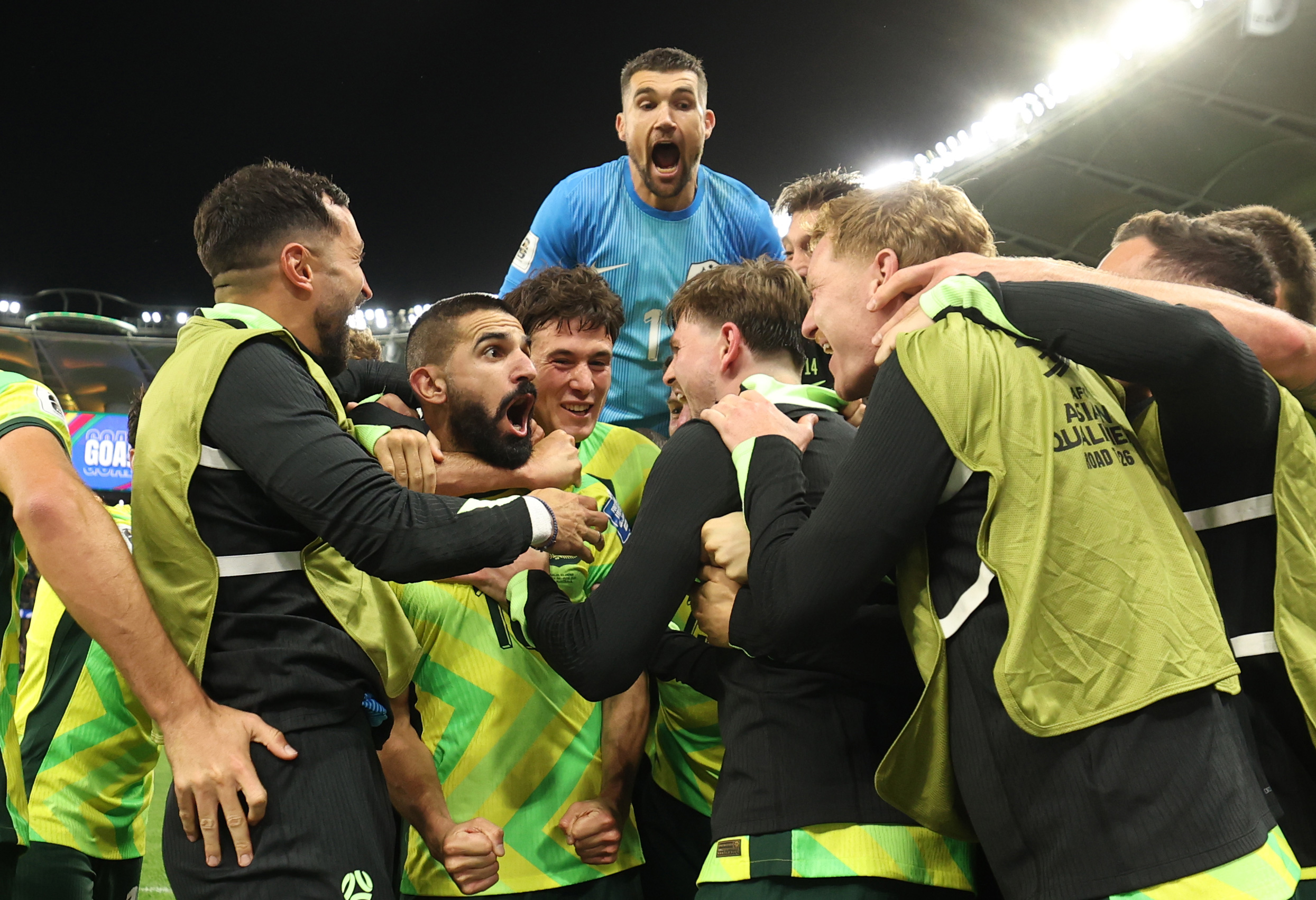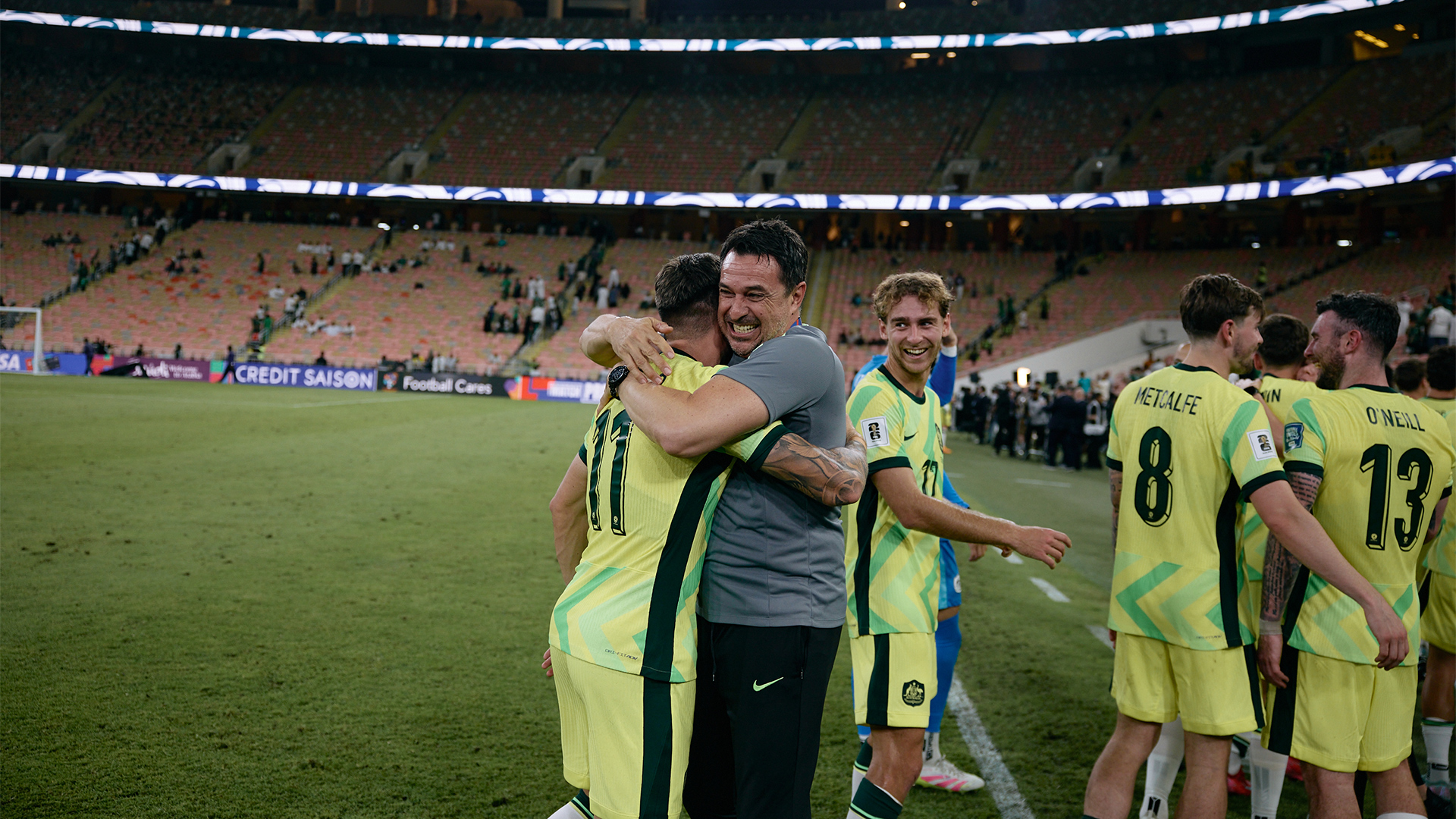It is amazing how effortlessly the words sixth straight World Cup will roll off the tongue over the next 11 months.

This week, it was announced that a friendly in the United States on October 15 (AEDT) will follow the Subway Socceroos’ match in Montreal against Canada four days earlier. These matches against two of the host nations follow a two-match series in September for the ANZAC Soccer Ashes, as the Socceroos begin preparations for that sixth straight World Cup.
Yes, there is always so much that can be done by everyone involved in the game in Australia to continue to improve our sport and keep it moving forward. But there’s also lots to celebrate and appreciate. This build-up, right now, is one of them.
Can you imagine in 2005, as we crossed our fingers, toes and anything else we could find to make our first World Cup finals since our 1974 pioneers, that one day we’d be nonchalantly talking about a sixth straight World Cup, with the clout to play against the hosts in preparation?
That a generation doesn’t know the pain, the journey and the anguish but expects to see gold jerseys resplendent on the biggest stage on earth? Could we have imagined, with the click of a finger, we’d be approaching 20 years since November 16, 2005, where a fan in their early 20s might ask: ‘oh, I heard about that shootout, remind me what happened?’
To fully appreciate what we’ve got and where we’re going, you need to understand where we’ve been. So, for that reason - among others - I wrote a book for school aged readers last year, The Goals That Changed Australia - Stories From The Biggest Stage on Earth, a combined narrative of the Socceroos and Matildas from John Aloisi’s penalty to Cortnee Vine’s winning goal against France, with everything in between and how we got there.
Having relived the trials and tribulations and twists and turns compiling that story, the journey that has us battle-hardened but intoxicated when it comes to our national teams, this announcement of the upcoming friendlies feels unseasonably calm for Australian football fans!
In a way, it almost underplays the magnitude of what Tony Popovic and his squad sealed in June in Saudi Arabia.

Qualifying automatically this year is a remarkable enough accomplishment on its own, given the context and the recovery the Socceroos made in third round qualifying after Popovic took over in October 2024, with the Socceroos’ campaign in dire straits.
It is now merely a footnote (or a couple of pages in my next chapter!), but when the Socceroos found themselves 1-0 down to China, on the cusp of half-time in Popovic’s first match (Australia’s third following a loss to Bahrain and draw to Indonesia) in October, it wasn’t automatic qualification that fans were worried about. The play-offs themselves, even in an expanded qualifying system, were starting to feel elusive.
The Socceroos went on to claim a comeback victory and Popovic revitalised and solidified the Socceroos’ campaign, culminating in the magnificent double header in June, breaking the 16-year drought against Japan before heading to Saudi Arabia.

Sealing the comeback and qualification against those two teams in particular is not insignificant either; they both consigned Australia to the play-offs for 2018 and 2022. This was a breakthrough triumph, completed without Jackson Irvine and Harry Souttar, among others.
This group is fused with what appears to be a renewed steel and mentality, summed up by the skipper, Maty Ryan, saving a penalty in his 100th cap, completing a campaign where he had to fight as hard for his spot as he has in his entire career. Soon, he is likely to eclipse icons Mark Schwarzer and Tim Cahill as our most capped Socceroo. This group of players is making its own history.
11 months.
That’s how long Popovic has to prepare his squad and mould them for the biggest stage sport offers.
And these testing months have already started to develop a pool of players for Popovic to assess and grow; indeed, moments before Aziz Behich added to the Socceroos’ pantheon of golden moments, three men summoned from the bench - Daniel Arzani, Jason Geria and Riley McGree - conspired to etch out the match-winning, World Cup-sealing moment. Nothing builds quality like competition for places.
Not since 2013 have the Socceroos had the luxury of not putting their fans through the roller coaster of play-offs. And not since 2009 have Socceroos fans entered a World Cup without either a change of coach (2014 and 2018) or the benefit of such a run-in. Andrew Redmayne’s penalty heroics came less than six months before the 2022 tournament in Qatar, sealing the last place available in the tournament.
Popovic will know the benefit of extensive preparation better than anyone, having experienced Guus Hiddink’s famous preparation that had the 2006 Socceroos primed for the side’s return to the world stage. It is fitting, as we hit two decades since our Golden Generation’s crowning moment, that one of their leaders is now the first to graduate to coach the side. Forever Golden, indeed, as the new campaign suggests.
Amongst those by his side will be Paul Okon. Earlier, I wrote about needing to understand the past to help appreciate or understand the present. Okon, one of the country’s finest talents, who led his country onto the MCG and Estadio Centenario in 2001, has had to wait 25 years for this moment.

If there’s a generation that now love watching the Socceroos at World Cups, but perhaps taking that feat for granted, they just need to watch Popovic, and his staff, the moment Behich’s rocket rattled the net against Japan.
Popovic, one of the game’s toughest defenders and disciplinarians as a coach, slumped to his knees as the emotion gushed. Fists pumping. Utter jubilation. Raw feelings. Cue delirium behind him on the bench, as his assistants unleashed sheer, unadulterated joy.
This is what it means.
Just ask Alessandro Circati; arguably the Australian playing at the highest club level week in, week out in Italy. Yet when qualification was sealed for his country, he could hardly hold back the tears.
The sixth consecutive World Cup rolls off gleefully, but it doesn’t make it less meaningful. It puts Australia in coveted international company, gives us an opportunity to continue to grow as a football nation and allows a whole new generation to write, and enjoy, the next chapter with a build-up quite unlike any other we've experienced.
The Goals That Changed Australia, published by Fair Play Publishing, is available as a book, e-book and audio book and is suitable for primary school and older.
